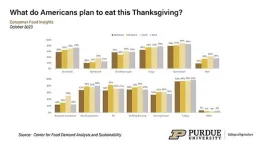MINNEAPOLIS – People with low education and income levels may have a 10% increased risk of death or being dependent on others to complete daily tasks three months after a stroke compared to people with high education and income levels, according to new research published in the November 8, 2023, online issue of Neurology®, the medical journal of the American Academy of Neurology. The study does not prove that low education and income cause worse outcomes after stroke. It only shows an association.
“Compared to people with high socioeconomic status, people with low socioeconomic status have been shown in previous research to have more cardiovascular risk factors for stroke and less access to quality stroke care,” said study author Anita Lindmark, PhD, of Umeå University in Sweden. “Our study sought to determine if socioeconomic status plays a role after stroke. Not only did we find an increased risk of death and dependency on others for those with low education and income levels, we also found that if interventions were put in place to reduce disparities, it could save lives.”
For the study, researchers identified 25,846 people in the Swedish Stroke Register who had a stroke during a two-year period, and who prior to their stroke were able to live independently with no assistance with daily activities such as walking, dressing, bathing or eating. Three months after stroke, 6,798 people died or needed assistance with daily activities.
Researchers then identified income and education levels for participants. They divided education into three levels: primary school, high school and college. They defined income as the participant’s portion of their family’s disposable income the year before the stroke.
Using these two measures, researchers divided participants into three socioeconomic groups. Low socioeconomic status was defined as having only a primary school education and a disposable income in the lowest group. High socioeconomic status was having a college education and a disposable income in the highest group. Everyone in between was placed in the middle group.
Researchers then determined the risk of death and being dependent on others to complete daily tasks at three months after stroke. Of 4,134 people in the low group, 1,619 people, or 39%, died or were dependent on others. Of 3,347 people in the high group, 591 people, or 18%, died or were dependent on others.
After adjusting for sex and age, researchers found people in the low socioeconomic group had a 5% increased absolute risk of death and dependency on others compared to people in the middle group, and a 10% increased absolute risk compared to people in the high socioeconomic group.
Researchers then conducted an analysis to examine how much risk would remain if those in the low group had the same co-occurring diseases, stroke severity and stroke treatments, such as blood thinners and surgery, as the people in the high group. Through this analysis, researchers found that 40% of the increased risk was removed, resulting in an overall 3% increased risk for people in the low group when compared to middle, and a 6% increased risk when compared to the high group.
“Our research suggests that it could be possible to save 40 out of every 1,000 patients in the low socioeconomic group from dying or becoming dependent on others if we could equalize differences between socioeconomic groups,” said Lindmark. “Much of this reduction in risk for people with low socioeconomic status could be accomplished by interventions that could reduce stroke severity.”
One limitation of the study was incomplete information on the medical care participants received after their stroke, as well as whether they took all medications. There was also limited information on other social determinants of health such as occupation and the neighborhoods where participants lived.
The study was supported by FORTE, a government agency under the Swedish Research Council for Health, Working Life and Welfare, and the Swedish Research Council.
Learn more about stroke at BrainandLife.org, home of the American Academy of Neurology’s free patient and caregiver magazine focused on the intersection of neurologic disease and brain health. Follow Brain & Life® on Facebook, Twitter and Instagram.
When posting to social media channels about this research, we encourage you to use the hashtags #Neurology and #AANscience.
The American Academy of Neurology is the world’s largest association of neurologists and neuroscience professionals, with over 40,000 members. The AAN is dedicated to promoting the highest quality patient-centered neurologic care. A neurologist is a doctor with specialized training in diagnosing, treating and managing disorders of the brain and nervous system such as Alzheimer’s disease, stroke, migraine, multiple sclerosis, concussion, Parkinson’s disease and epilepsy.
For more information about the American Academy of Neurology, visit AAN.com or find us on Facebook, Twitter, Instagram, LinkedIn and YouTube.
END
Your education and income level may affect your survival, recovery from stroke
Reducing disparities could reduce deaths, dependency after stroke
2023-11-08
(Press-News.org) EMBARGOED FOR RELEASE UNTIL 4 P.M. ET, WEDNESDAY, NOVEMBER 8, 2023
ELSE PRESS RELEASES FROM THIS DATE:
For epilepsy, yoga may be good for your mind
2023-11-08
EMBARGOED FOR RELEASE UNTIL 4 P.M. ET, WEDNESDAY, NOVEMBER 8, 2023
MINNEAPOLIS – For people with epilepsy, doing yoga may help reduce feelings of stigma about the disease along with reducing seizure frequency and anxiety, according to new research published in the November 8, 2023, online issue of Neurology®, the medical journal of the American Academy of Neurology.
“People with epilepsy often face stigma that can cause them to feel different than others due to their own health condition and that can have a significant impact on their quality of life,” said study author ...
Increasing workplace flexibility associated with lower risk of cardiovascular disease
2023-11-08
Embargoed for release: Wednesday, November 8, 4:00 PM ET
Key points:
In a randomized trial of the cardiometabolic impacts of workplace interventions designed to reduce work-family conflict, older employees and those at baseline higher risk for cardiometabolic disease saw their risk of developing cardiovascular disease decrease equivalent to five to 10 years of age-related cardiometabolic changes.
The study is among the first to assess whether changes to the work environment can affect cardiometabolic risk.
Boston, MA—Increasing workplace flexibility may lower employees’ risk of cardiovascular disease, according to a new ...
New interactive evidence-based mapping tool gives policymakers more insight into highly concentrated cannabis products
2023-11-08
After conducting the first scoping review of its kind, researchers at the University of Colorado Anschutz Medical Campus have developed an evidence based interactive mapping tool to assist policymakers as they consider regulating the concentration of THC in cannabis products and as more potent products move into the marketplace.
Their review, funded by the State of Colorado, was released today in the American Journal of Public Health (AJPH).
“We looked at studies that measured adverse or beneficial effects of high concentration ...
Independent monitoring of the WHO pandemic agreement is non-negotiable, experts say
2023-11-08
An accountability framework, including independent monitoring of state compliance, is critical for the pandemic agreement's success, according to researchers at Columbia University Mailman School of Public Health and affiliates at Spark Street Advisors. The paper and findings are published in BMJ Global Health.
“Countries signing up to a pandemic agreement is no guarantee of its effective implementation,” said Nina Schwalbe, adjunct assistant professor in the Department of Population and Family Health and principal visiting fellow at Columbia Mailman School. “Countries' lack of compliance with ...
NASA’s Webb findings support long-proposed process of planet formation
2023-11-08
Scientists using NASA’s James Webb Space Telescope just made a breakthrough discovery in revealing how planets are made. By observing water vapor in protoplanetary disks, Webb confirmed a physical process involving the drifting of ice-coated solids from the outer regions of the disk into the rocky-planet zone.
Theories have long proposed that icy pebbles forming in the cold, outer regions of protoplanetary disks — the same area where comets originate in our solar system — should be the fundamental seeds of planet formation. The main requirement of these theories is that pebbles should drift inward toward the star due to friction in the gaseous disk, ...
UTIA faculty member serves as editor of the Journal of Food Distribution Research
2023-11-08
Carlos Trejo-Pech, an associate professor in the Department of Agricultural and Resource Economics at the University of Tennessee Institute of Agriculture, is a newly appointed editor of the Journal of Food Distribution Research.
“It is a great honor and big responsibility to serve as a journal editor of a publication outlet in the agricultural economics and agribusiness discipline,” said Trejo-Pech. “We, the editors, are committed to disseminating the results of high-quality research.”
The journal was established in 1969 under the auspices of the Food Distribution Research Society, the only body of scholars and practitioners in the United States dedicated ...
October Consumer Food Insights Report highlights thanksgiving meal plans
2023-11-08
October Consumer Food Insights Report highlights Thanksgiving meal plans
WEST LAFAYETTE, Ind. – Nearly eight in 10 Americans will celebrate the upcoming Thanksgiving holiday with a special meal, according to the October 2023 Consumer Food Insights Report.
The survey-based report out of Purdue University’s Center for Food Demand Analysis and Sustainabilityassesses food spending, consumer satisfaction and values, support of agricultural and food policies, and trust in information sources. Purdue ...
Hodgkin’s lymphoma: Small change, big effect
2023-11-08
Hodgkin’s lymphoma is one of the most common types of lymphoma in young adults. It is characterized by the presence of enlarged B lymphocytes, which are unusual in that they bear on their surface the identifying markers of many other immune cells – such as those found on phagocytes, dendritic cells, or T cells. Now, a team led by Stephan Mathas from the Experimental and Clinical Research Center (ECRC) has explained how these changes take place in the cells and what impact they have. The ECRC is a joint institution of the Max Delbrück Center and Charité – Universitätsmedizin Berlin.
“Many different ...
How animals get their stripes and spots
2023-11-08
Nature has no shortage of patterns, from spots on leopards to stripes on zebras and hexagons on boxfish. But a full explanation for how these patterns form has remained elusive.
Now engineers at the University of Colorado Boulder have shown that the same physical process that helps remove dirt from laundry could play a role in how tropical fish get their colorful stripes and spots. Their findings were published Nov. 8 in the journal Science Advances.
“Many biological questions are fundamentally ...
A fifth of European Red List flora and fauna species may be at risk of extinction
2023-11-08
A new analysis of 14,669 threatened species of plants and animals found in Europe reveals that about one fifth face the risk of extinction, and that agricultural land-use change poses a significant threat to these species. Axel Hochkirch of the Musée National d’Histoire Naturelle, Luxembourg, and colleagues present these findings in the open-access journal PLOS ONE on November 8, 2023.
The variety of species of living things—biodiversity—is declining around the world, as more and more species face the risk of extinction. Many efforts, including some by governments and nonprofit organizations, aim to reduce the loss ...
LAST 30 PRESS RELEASES:
A genetic brake that forms our muscles
CHEST announces first class of certified critical care advanced practice providers awarded CCAPP Designation
Jeonbuk National University researchers develop an innovative prussian-blue based electrode for effective and efficient cesium removal
Self-organization of cell-sized chiral rotating actin rings driven by a chiral myosin
Report: US history polarizes generations, but has potential to unite
Tiny bubbles, big breakthrough: Cracking cancer’s “fortress”
A biological material that becomes stronger when wet could replace plastics
Glacial feast: Seals caught closer to glaciers had fuller stomachs
Get the picture? High-tech, low-cost lens focuses on global consumer markets
Antimicrobial resistance in foodborne bacteria remains a public health concern in Europe
Safer batteries for storing energy at massive scale
How can you rescue a “kidnapped” robot? A new AI system helps the robot regain its sense of location in dynamic, ever-changing environments
Brainwaves of mothers and children synchronize when playing together – even in an acquired language
A holiday to better recovery
Cal Poly’s fifth Climate Solutions Now conference to take place Feb. 23-27
Mask-wearing during COVID-19 linked to reduced air pollution–triggered heart attack risk in Japan
Achieving cross-coupling reactions of fatty amide reduction radicals via iridium-photorelay catalysis and other strategies
Shorter may be sweeter: Study finds 15-second health ads can curb junk food cravings
Family relationships identified in Stone Age graves on Gotland
Effectiveness of exercise to ease osteoarthritis symptoms likely minimal and transient
Cost of copper must rise double to meet basic copper needs
A gel for wounds that won’t heal
Iron, carbon, and the art of toxic cleanup
Organic soil amendments work together to help sandy soils hold water longer, study finds
Hidden carbon in mangrove soils may play a larger role in climate regulation than previously thought
Weight-loss wonder pills prompt scrutiny of key ingredient
Nonprofit leader Diane Dodge to receive 2026 Penn Nursing Renfield Foundation Award for Global Women’s Health
Maternal smoking during pregnancy may be linked to higher blood pressure in children, NIH study finds
New Lund model aims to shorten the path to life-saving cell and gene therapies
Researchers create ultra-stretchable, liquid-repellent materials via laser ablation
[Press-News.org] Your education and income level may affect your survival, recovery from strokeReducing disparities could reduce deaths, dependency after stroke





